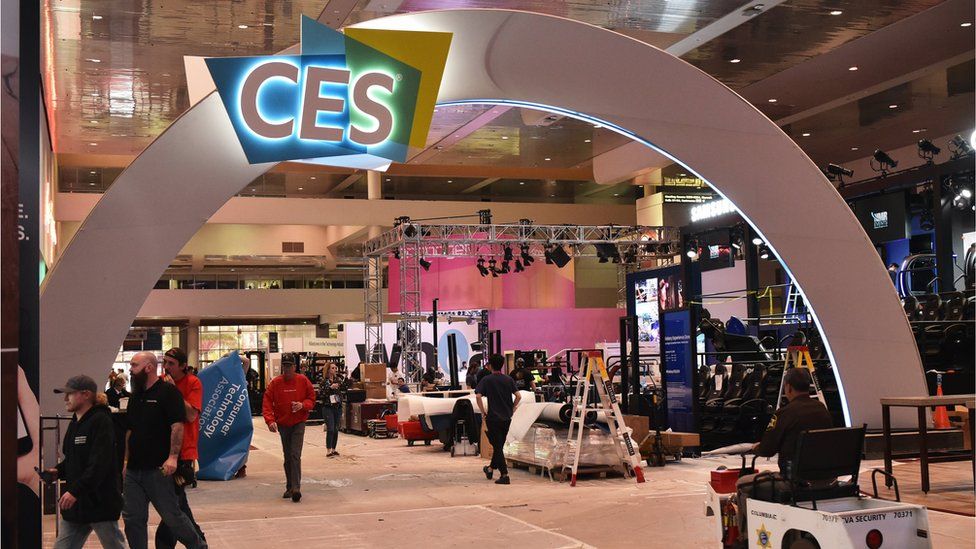CES 2018: Event chief reacts to sexist speaker list row
- Published

The chief of the CES tech trade show has pledged to try to have more female keynote speakers at future events.
The Consumer Technology Association's Gary Shapiro said his team would "redouble our efforts to expand women's voices".
It follows criticism that all the major "keynote" presentations were scheduled to be by men this year.
The CTA said it had, however, added two female leaders to a panel on the future of video.
They are Nancy Dubuc, president of A+E Networks - an entertainment media company - and Kristin Dolan, chief executive of 605 - a TV data analytics provider.
However, the only invitees set to give standalone presentations remain men:
- Jim Hackett - chief executive of Ford
- Richard Yu - chief executive of Huawai's consumer business group
- Brian Krzanich - chief executive of Intel
This follows an all-male line-up of major speakers in 2017.
The CTA had previously said that it had sought female keynote speakers but had struggled to find people who met its criteria.
"To keynote at CES, the speaker must head (president/CEO level) a large entity who has name recognition in the industry," blogged the organisation's vice president Karen Chupka.
Even so, Mr Shapiro acknowledged that his organisation could do better in 2019.
"A recent report from the Government Accountability Office found that 'there remains a persistent lack of racial, ethnic, and gender diversity in the technology workforce,'" he wrote in a letter to Gina Glantz, founder of equality group Gender Avenger, who had criticised CES's speaker selection.
"This is a global issue - not just within the technology sector - all industries and our society at large can and must do better.
"Those of us who produce events must do better too."
Ms Glantz responded via Twitter saying: "A start. Looking forward to 'meaningful dialogue' translating into action in 2019."
Allow Twitter content?
This article contains content provided by Twitter. We ask for your permission before anything is loaded, as they may be using cookies and other technologies. You may want to read Twitter’s cookie policy, external and privacy policy, external before accepting. To view this content choose ‘accept and continue’.
The CTA has faced criticism in the past for refusing to ban exhibitors from using scantily clad models, although it has warned companies that the use of "booth babes" might reflect poorly on them.
One analyst who has been to more than 10 CES events contrasted the number of models wearing "stilettos and skimpy clothes" in attendance to the lack of female keynote speakers, but added that the CTA was not totally to blame.
Booth babe debate hits CES 2013
"When it comes to speaking engagements, I think the organisers should do more, and pay attention to not just gender but also the different races that are represented," Carolina Milanesi, principal analyst at Creative Strategies, told the BBC.
"Tech isn't just a white industry.
"But when it comes to booth babes, action shouldn't have to come from them.
"It should be common sense for the vendors who are exhibiting here to make the decision to stop using them."
- Published6 January 2018
- Published23 October 2017
- Published11 February 2013